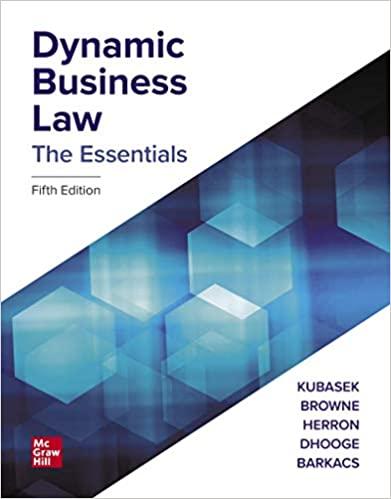Defendant Practice approached the Hospital about its desire to employ Dr. Rasheed and asked the Hospital to
Question:
Defendant Practice approached the Hospital about its desire to employ Dr. Rasheed and asked the Hospital to help facilitate his recruitment. The three entered into an agreement that Dr. Rasheed would relocate his practice and practice medicine in Jackson on a full-time basis for 36 months. Under the agreement, “[a]ny material breach of this Agreement by Physician and/or Practice, or a failure by Physician and/or Practice to fulfill any material provisions of this Agreement shall entitle Hospital, at its option, to terminate this Agreement immediately.” The Practice agreed to be jointly and severally liable for any amounts owed to the Hospital in the event of any breach by the Practice or Dr. Rasheed. The agreement guaranteed Dr. Rasheed a monthly cash collection of $23,350.00 for the first year. The Hospital advanced $180,187.43, to the Practice and Dr. Rasheed as cash collections guarantee payments during the 12-month guarantee period, an amount that the Practice and Dr. Rasheed were jointly and severally liable to repay at the end of the guarantee period. The agreement provided that the debt would be completely or partially forgiven if Dr. Rasheed continued to practice full-time in Jackson for two years at the end of the guarantee period, but if he failed to continue practicing for that time period, he or the practice would immediately reimburse the hospital the amount advanced. Less than one year into the agreement period, Dr. Rasheed stopped his full-time medical practice in Jackson, so the hospital requested reimbursements of the advanced payments pursuant to the terms of the agreement. The Practice did not respond to the Hospital’s demand for payment. The hospital then sued the Practice for breach of contract, seeking to recover the amount owed under the agreement. The Practice answered that the doctor’s actions were the cause of the breach, and therefore he alone was liable, not the Practice. Following discovery, the Hospital filed a motion for summary. In its response, the Practice stated that Dr. Rasheed left the area after being named as the subject of sexual misconduct allegations involving the staff and child patients, for which he was being pursued civilly and criminally. Therefore, it was impossible for Dr. Rasheed to practice and impossible for the Practice to allow him to continue practicing. Because there was an issue as to whether Dr. Rasheed had the ability to perform under the agreement, the Practice argued that summary judgment was inappropriate. The court granted the Practice’s motion and the hospital appealed. How do think the appellate court decided the case and why?
Step by Step Answer:

Dynamic Business Law The Essentials
ISBN: 9781260253382
5th Edition
Authors: Nancy Kubasek, M. Neil Browne, Daniel Herron, Lucien Dhooge, Linda Barkacs





